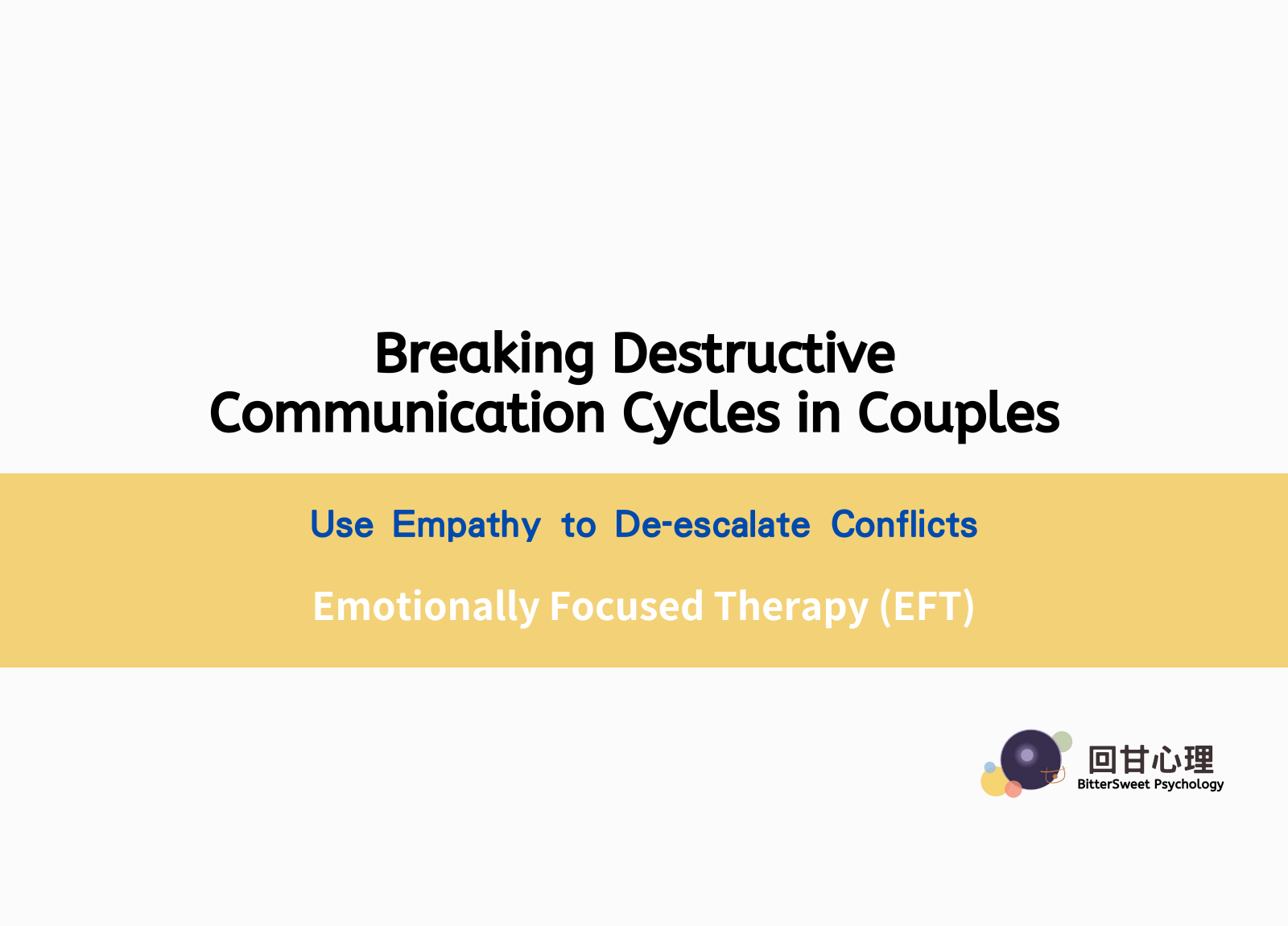In close relationships, particularly romantic ones, communication can become a source of conflict when underlying emotional needs go unmet.
Couples may find themselves caught in recurring, negative communication cycles, where interactions that seem simple or insignificant ignite deeper insecurities or unhealed wounds.
When these cycles are left unaddressed, they often escalate into a broader disconnection.
Emotionally Focused Therapy (EFT) focuses on understanding these cycles and changing the patterns of interaction to foster deeper connection, empathy, and security between partners.
Common Communication Pitfalls in Couples
Criticism and Blaming
One partner may feel compelled to criticize the other, perhaps in an attempt to express unmet needs or frustrations.
However, when these issues are expressed through blame or criticism, they often trigger defensiveness in the other partner.
This pattern can cause both partners to focus on each other’s flaws instead of recognizing the underlying feelings fueling the criticism.
Stonewalling and Withdrawal
In response to criticism or emotional intensity, some individuals tend to shut down or withdraw from the conversation, leaving their partner feeling abandoned or dismissed.
While this behavior may serve as a coping mechanism to avoid conflict, it can lead to further frustration and emotional distance.
Over time, the partner who withdraws may feel misunderstood, while the other feels increasingly disconnected.
Defensiveness and Counterattack
When one partner feels attacked, they may respond defensively, which often involves counterattacking.
This behavior leads to a cycle of accusation and counter-accusation, escalating the tension without addressing the root cause.
This cycle often results in both partners feeling unheard, unappreciated, and unsupported.
Demand-Withdraw Cycle
This pattern involves one partner (the “demander”) seeking more engagement or intimacy, while the other (the “withdrawer”) retreats in response.
The more the demander presses, the more the withdrawer distances themselves, creating a cycle that reinforces each person’s frustrations and fears of either abandonment or entrapment.

Practical EFT-Based Strategies for Breaking Cycles
Negative communication cycles are not simply surface-level issues but are driven by deeper emotional needs and fears.
Therapists help couples recognize these patterns and reframe them as “dances” that keep them stuck.
Through this approach, couples learn to identify and share their primary emotions (such as fear of rejection or desire for closeness) instead of expressing secondary emotions (like anger or frustration), which often mask their vulnerability.
Identify the Cycle, Not the Partner
Couples should learn to view the conflict as a result of a “cycle” rather than the fault of one partner.
When couples frame the conflict this way, they can work as a team against the cycle rather than seeing each other as adversaries.
This mindset shift reduces blame and opens up space for understanding.
Practice Vulnerable Communication
Instead of responding with anger or defensiveness, each partner can learn to express their underlying emotions more directly.
For instance, instead of saying, “You never listen to me,” one might say, “I feel lonely and like my feelings aren’t important when I don’t feel heard.”
This type of vulnerable sharing encourages the other partner to respond with empathy and shifts the conversation away from accusations.
Create a Safe Space for Emotions
EFT emphasizes the importance of emotional safety, where each partner feels they can be vulnerable without fear of judgment or retaliation.
Couples can practice making space for each other’s feelings by actively listening without interrupting, validating each other’s emotions, and reassuring each other that their feelings are valued.
Soften the Startup
According to EFT, couples are encouraged to address issues with a gentle approach.
Starting conversations with an “I” statement, such as “I feel worried when…” instead of a “You” statement, like “You always…,” can prevent the other partner from becoming defensive and make it easier to respond openly and empathetically.
Use Empathy to De-escalate Conflicts
EFT encourages each partner to step into the other’s shoes and consider how they might feel in that situation.
Empathy can act as a powerful tool for breaking negative cycles by helping each partner see the pain behind the other’s actions.
When couples approach each other with compassion, they’re more likely to break the cycle of blame and withdraw.
Negative communication cycles can be deeply ingrained and challenging to break, but with the tools provided in therapy, couples can learn to address their unmet emotional needs and transform destructive patterns into opportunities for closeness and connection.
By learning to identify cycles, communicate vulnerably, and approach each other with empathy, couples can foster a secure, supportive bond that withstands conflict and promotes emotional intimacy.




